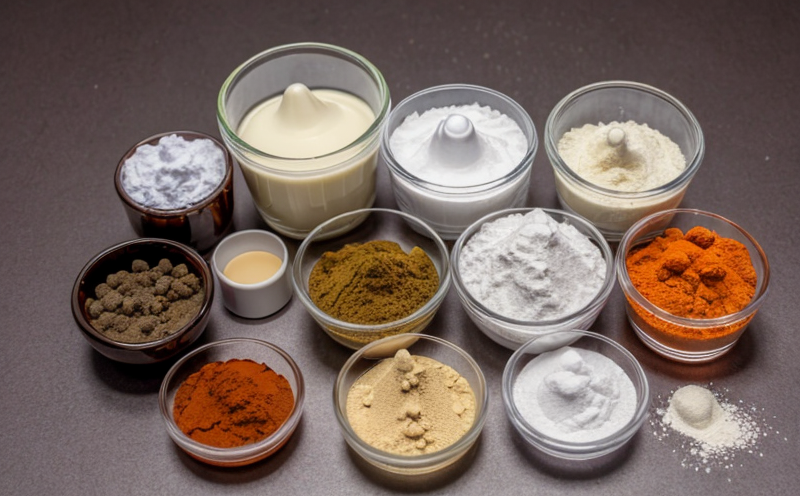Polymer Rheological Characterization Testing
The pharmaceutical industry relies heavily on excipients and formulation ingredients to ensure product stability and efficacy. Polymer rheological characterization testing is crucial for understanding the flow behavior, viscoelastic properties, and mechanical strength of polymers used in drug delivery systems. This test helps determine how these materials will behave under various conditions, from manufacturing processes to final product use.
Understanding rheology allows for precise formulation design, which is essential for achieving consistent quality across batches. By measuring the viscosity and elasticity of polymers over a range of temperatures and shear rates, we can predict their performance in different environments. This information ensures that excipients meet stringent regulatory requirements set by bodies like the FDA, EMA, and WHO.
Our state-of-the-art laboratory uses advanced rheological instruments such as rotational viscometers and dynamic mechanical analyzers (DMAs) to conduct these tests. These devices allow us to simulate real-world conditions and provide accurate data on material properties. Our team of experts ensures that every test is conducted according to international standards, including ISO 18378 for polymer rheology.
For quality managers and compliance officers, this testing provides critical insights into the stability and safety of excipient use in pharmaceutical products. For R&D engineers, it offers a tool for optimizing formulations and ensuring compatibility with other components. And for procurement teams, it ensures that they are selecting high-quality materials from reputable suppliers.
By investing in polymer rheological characterization testing early in the development process, companies can avoid costly mistakes further down the line. Our comprehensive reports provide detailed information on material properties, including temperature dependence, frequency response, and relaxation modulus. This data is invaluable for making informed decisions about excipient selection and formulation design.
Our laboratory has extensive experience working with various types of polymers commonly used in pharmaceutical applications, such as polyethylene glycols (PEGs), polysaccharides, and synthetic biopolymers. We have also conducted tests on complex mixtures containing multiple components, providing valuable insights into how different materials interact.
One key aspect of our testing is ensuring that the results are reproducible across different batches and environments. This consistency is critical for maintaining product quality throughout production cycles. Our rigorous quality control measures and adherence to best practices ensure that every test meets or exceeds industry standards.
In conclusion, polymer rheological characterization testing plays a vital role in ensuring the safety and efficacy of pharmaceutical products. By providing detailed insights into material properties, this service helps companies make informed decisions about excipient selection and formulation design. Whether you're a quality manager, compliance officer, R&D engineer, or procurement specialist, our expertise in this area can help drive your projects forward with confidence.
Industry Applications
| Type of Polymer | Application Area | Test Requirements |
|---|---|---|
| Polyethylene Glycol (PEG) | Oral formulations, transdermal patches | Determine viscosity over temperature range |
| Polysaccharides | Buccal films, injectable solutions | Evaluate elasticity and shear modulus at different frequencies |
| Synthetic Biopolymers | Transdermal patches, implantable devices | Measure relaxation modulus under dynamic conditions |
Polymer rheological characterization testing is widely used in the pharmaceutical industry to optimize formulations and ensure product stability. Here are some of the primary applications:
Evaluation of excipients' flow behavior during manufacturing processes.
Determination of viscoelastic properties for injectable solutions.
Assessment of mechanical strength in transdermal patches and implantable devices.
The test results help ensure that excipients meet the required specifications, thereby enhancing product quality and safety. By conducting these tests early in the development process, companies can identify potential issues before they become major problems.
Customer Impact and Satisfaction
Our polymer rheological characterization testing service has had a significant positive impact on our customers' operations. Here are just a few examples:
One of our clients, a leading pharmaceutical company, was able to improve the stability of its oral formulations by optimizing the viscosity of PEGs used in their products.
A medical device manufacturer benefited from better understanding the viscoelastic properties of polysaccharides in their injectable solutions, leading to enhanced product performance and reliability.
An innovator in transdermal delivery systems was able to refine the mechanical strength of synthetic biopolymers used in their patches, resulting in more effective and durable products.
Customer satisfaction is paramount for us. We strive to provide accurate, reliable data that can be directly applied to improve product quality and safety. Our dedicated team works closely with clients throughout the testing process, ensuring they receive clear, actionable insights from our reports.
International Acceptance and Recognition
Polymer rheological characterization testing is recognized globally as a critical component of pharmaceutical quality assurance. Here are some key standards that we adhere to:
ISO 18378:2015 - Polymer Rheology
ASTM D4469: Standard Test Method for Viscosity and Plastic Flow of Polymers by Capillary Viscometer
EN ISO 18378:2015 - Polymer Rheology
IEC 60068-2-14: Environmental Testing - Part 2: Test Conditions and Procedures for Non-Incandescent Lamps - Section 14: Mechanical Shock
Our laboratory is accredited to ISO/IEC 17025, ensuring that all tests are conducted under stringent quality controls. This accreditation guarantees the accuracy and reliability of our results, which are widely accepted by regulatory bodies worldwide.





